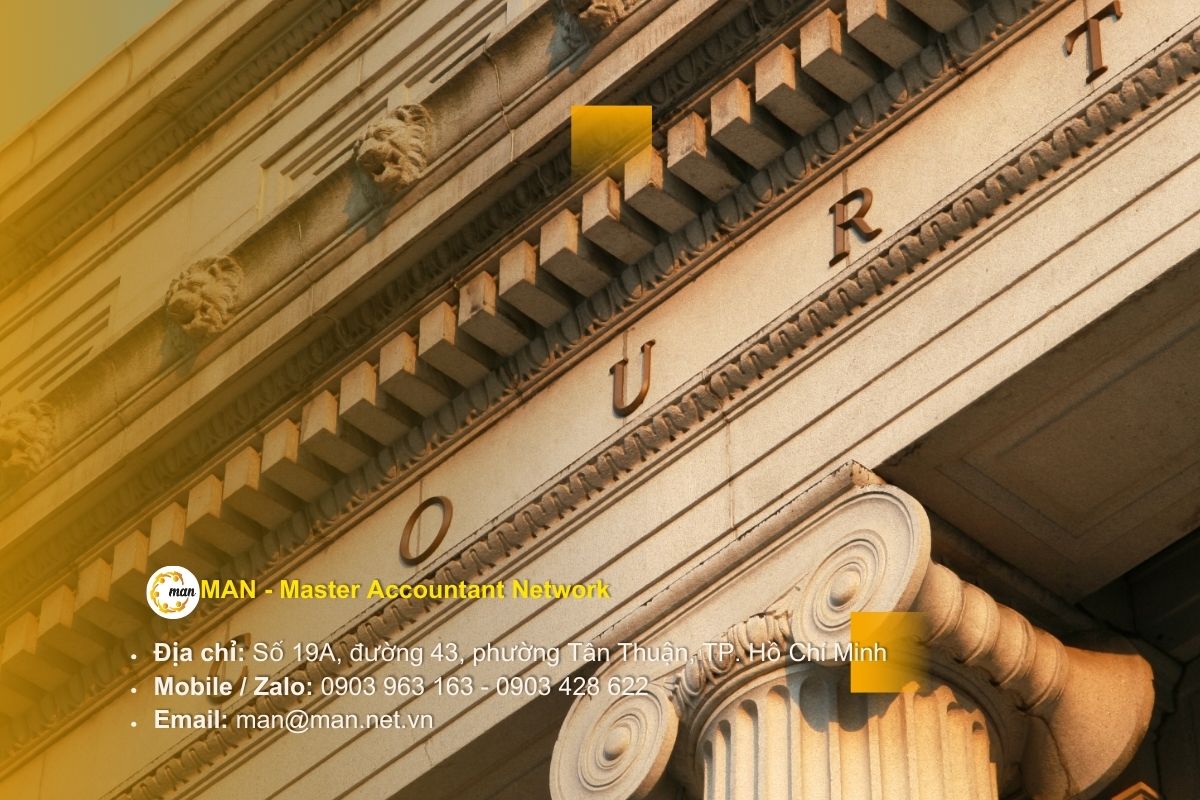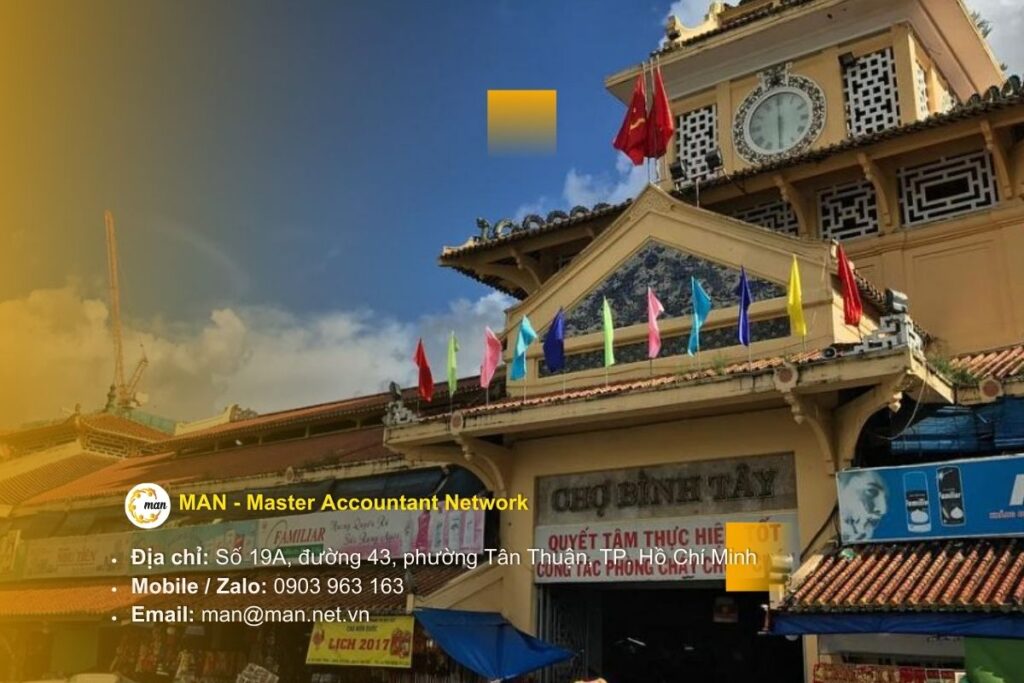Timely handling of related party transaction violations will help businesses to make transactions transparent, comply with the law and avoid unnecessary risks. Even small errors in related party transactions can cause businesses to be subject to tax arrears and administrative penalties. This article will guide you on how to handle related party transaction violations and how to overcome them to help businesses stay proactive.
What is the handling of violations in related-party transactions?
Handling of violations affiliate transactions is an important step to help businesses comply with the law, protect their reputation and finances. Related party transactions are transactions that occur between related parties, such as between a parent company and a subsidiary, or between companies in the same shareholder group. They can include: buying and selling goods, providing services, transferring intangible assets, internal financial support, or complex profit transactions.
The importance of handling related party transaction violations
Handling related party transactions is a decisive factor in helping businesses maintain transparent operations, comply with the law and protect their reputation in the market. In today's business environment, transactions between related parties - such as parent companies and subsidiaries, or companies with the same group of shareholders - may involve the purchase and sale of goods, the provision of services, the transfer of intangible assets or internal financial support. If not strictly controlled, these transactions risk creating violations in tax, valuation and cost recognition.
Handling related-party transaction violations helps businesses achieve many important benefits:
Compliance with laws and reduction of tax risks
If there is a delay in handling related party transaction violations, businesses may face many serious consequences. Therefore, it is necessary to pay attention to the following aspects:
- Ensure transactions comply with the arm's length principle.
- Avoid tax authorities from collecting corporate income tax (CIT), administrative fines or late payment interest.
Protecting business reputation
Handling of related-party transaction violations not only helps to comply with the law but also brings many obvious benefits, specifically:
- Violations, if discovered, can directly affect the trust of investors, partners and customers.
- Timely handling demonstrates transparency, enhances brand value and corporate governance reputation.
Optimize risk and internal management
In addition to complying with the law and protecting reputation, handling related-party transaction violations also brings two outstanding values to businesses:
- Help businesses detect gaps in internal control processes.
- Establish measures to prevent future violations, minimizing costs and legal risks.
Improve financial performance and business strategy
Handling related-party transaction violations not only helps businesses comply with the law but also brings direct effectiveness in financial management, typically:
- Ensure costs and revenues are accurately recorded, supporting strategic decision making.
- Help businesses build financial and investment plans.
Thus, handling related party transaction violations is not only a legal obligation but also an important strategy to help businesses operate sustainably, protect shareholder interests and strengthen their competitive position in the market.
Cases of related party transaction violations

For easier visualization and a more systematic view, below is a summary table of common cases of related-party transaction violations.
Board: Summary of common cases of related party transaction violations.
| Type of violation | Signs of recognition | Business risks |
| Arm's Length Principle (ARP) | Unusual profit margin difference compared to independent businesses. Lack of comparison and transfer pricing records. Internal selling prices have no market basis. | Adjusted income or expenses by tax authorities. Collect taxes, fines and late interest. Distort financial reports, affect reputation |
| Lack of transparency in contracts and documents | The contract is sketchy, unclear about obligations and price basis. Invoice does not match actual service. Additional “post-event” records | Considered a non-substantive transaction. Risk of being heavily fined for not being able to prove the nature of the transaction. |
| Profit Shifting | Service charges, internal interest rates are unusually high. Royalty fees or administrative services are concentrated in “tax havens”. Companies in low-tax countries enjoy high profits but have no real economic activity or value. | Inspected under BEPS standards. Collect, fine, even prosecute. Reduced corporate transparency, loss of investor confidence. |
| Failure to declare or false declaration of information to the tax authorities | Missing transaction statement or declaration. Inconsistency in figures between financial statements and declarations. Data does not match related partner. | Administrative fines and collection. Risk of in-depth inspection. Criminal proceedings may be taken if the fraud is serious. |
As can be seen from the table above, each type of violation in related-party transactions has different potential legal and financial risks, but they all have in common that they put businesses at risk of tax collection, fines and loss of reputation. Therefore, handling of related-party transaction violations needs to be done promptly, systematically and based on a solid legal basis. Proactively reviewing, standardizing documents and consulting experts is the best way for businesses to protect their interests and develop sustainably.
Alarming data
In 2024, the Tax sector inspected and examined more than 919 enterprises with related-party transactions, thereby collecting, refunding and imposing fines of up to more than VND 1,780 billion.
According to the Tax Department, the above figures show the seriousness of transfer pricing in the current business system.
Among the inspected enterprises, FDI enterprises accounted for a very high proportion with many potential risks of related-party transactions. Also in 2024, 253 FDI enterprises with related-party transactions were inspected and examined. As a result, VND 998.33 billion was collected, refunded, and fined, and taxable income increased by VND 4,087 billion.
Legal basis and applicable standards for handling related party transaction violations
Handling of related party transaction violations begins with understanding the legal framework on related party transactions (documentation regulations, valuation methods, sanctions), establishing appropriate internal controls and exploiting the role of providing evidence and assessing risks of qualified internal audit. All are aimed at reducing the risk of collection, fines and protecting the reputation of the enterprise.

Decree 132/2020/ND-CP
Regulations on tax management for enterprises with related-party transactions. Clearly state the obligation to prepare and maintain transfer pricing records, the rights and responsibilities of tax authorities during inspections and audits. This is a fundamental document to determine that enterprises must prepare transfer pricing records and is the basis for handling violations of related-party transactions.
Corporate Income Tax Law
Any adjustments to taxable income, expense deduction basis, and regulations related to tax treatment directly affect the handling of violations. Pursuant to the Corporate Income Tax Law No. 67/2025/QH15 passed by the National Assembly on June 14, 2025 and effective October 1, 2025. The tax law re-regulates tax interest rates, which businesses need to understand to properly implement to avoid being handled for violations of related-party transactions. Join MAN - Master Accountant Network to learn about tax interest rates according to the Law.
Board: Corporate income tax rate according to Tax Law No. 67/2025/QH15.
| Subjects/ Conditions of application | Corporate income tax rate | Legal Note |
| General tax rate (generally applicable) | 20% | Except for the cases specified in Clauses 2, 3, 4, Article 10 of this Law and the subjects of tax rate incentives specified in Article 13. |
| Enterprises with total revenue under 3 billion VND | 15% | The base revenue is that of the immediately preceding tax period. |
| Enterprises with total annual revenue of over 3 billion and under 50 billion | 17% | The base revenue is that of the immediately preceding tax period. |
| Oil and gas exploration and exploitation activities | 25% – 50% | Based on the location, exploitation conditions and mine reserves, the Prime Minister decides on the specific tax rate appropriate to each petroleum contract. |
| Exploration and exploitation of resources | 50% | If the mine area is over 70% in a particularly difficult area, the tax rate is 40%. |
In which, Tax rate group 15%, 17%: Not applicable to enterprises that are subsidiaries or affiliated companies where the affiliated enterprise is not an enterprise that meets the conditions for applying preferential tax rates (based on Clause 4, Article 18 of the Law on Corporate Income Tax 2025)
OECD International Guidelines
OECD is the international reference standard for determining comparison methods, FAR (Functions – Assets – Risks) analysis and preparing three-tier documents (master file, local file, CbCR). When dealing with violations, benchmarking and OECD methodology increase the persuasiveness in explaining to tax authorities.
After fully analyzing the legal basis, it can be seen that delay or unsystematic handling of related-party transaction violations will put businesses at risk of tax collection, late payment penalties and loss of reputation with the management agency. Therefore, the next step that cannot be ignored is the steps to handle related-party transaction violations in a strict, scientific and transparent manner.
Procedure for handling related party transaction violations

To help businesses easily visualize and implement in practice, below is a table of steps to handle related-party transaction violations. This approach not only helps to clearly track each step, but also allows businesses to identify goals and important notes from the beginning.
Board: Procedure for handling related party transaction violations
| Step | Implementation content | Target | Note |
| Review and detect violations | Check the declaration and reporting of related party transactions and compare with actual data | Clearly identify the type of violation (missing documents, incorrect valuation, lack of evidence, etc.) | There should be consultation and support from experienced industry units or data analysis tools. |
| Risk assessment | Classify violations by nature from minor (lack of documents) to serious (transfer pricing). | Prioritize handling serious related-party transaction violations to avoid the risk of being taxed or even violating the law. | Pursuant to Decree 132/2020/ND-CP and OECD guidelines. |
| Collect and complete documents | Supplement contracts, comparison reports, valuation documents. | Ensure legality and transparency in affiliate transactions. | The documents must be prepared in accordance with the Decree's requirements. |
| Adjust and fix | Adjust transaction prices according to independent market principles. | Minimize the possibility of tax arrears and administrative penalties. | Prepare a report explaining the reasons and basis for adjustment. |
| Working with tax authorities | Actively exchange, provide information and explain when requested. | Be clear and transparent with the management agency | Do not delay or conceal information or misrepresent information. |
| Establish internal controls | Build a monitoring system, update annual records, apply compliance with OECD Decree and guidelines | Increase compliance and risk management | If the business does not have enough specialized staff, it should consider an independent third party for advice and periodic review. |
Handling of related party transaction violations is not only about resolving arising situations, but also about building a long-term compliance management system. If enterprises proactively review, correct errors and establish effective internal controls, they will not only minimize the risk of tax collection and administrative sanctions, but also strengthen their reputation with management agencies, investors and partners. This is a solid foundation for sustainable development in the context of increasingly strict regulations.
Conclude
Handling of related party transaction violations is not only about correcting errors to avoid tax collection and penalties, but also a strategic step to strengthen the management system, increase prestige and ensure sustainable development. In fact, enterprises that proactively build internal control mechanisms, promptly update legal regulations and are transparent in reporting always maintain a long-term competitive advantage.
If your business is looking for a comprehensive solution and a reliable team, MAN – Master Accountant Network is the place to put your trust in a team of experienced experts, ready to support your business in reviewing, processing and optimizing your related party transaction management strategy.
Contact information MAN – Master Accountant Network
- Address: No. 19A, Street 43, Tan Thuan Ward, Ho Chi Minh City
- Mobile / Zalo: 0903 963 163 – 0903 428 622
- E-mail: man@man.net.vn
Editorial Board: MAN – Master Accountant Network




